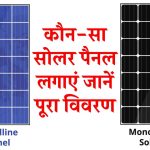
The UK solar capacity hitting 18 GW marks a pivotal point in the country’s transition to cleaner, greener energy. As of February 2025, the United Kingdom has officially surpassed the 18-gigawatt (GW) mark in installed solar photovoltaic (PV) capacity—demonstrating a powerful commitment to fighting climate change and embracing sustainable power sources.
With a strong boost from both residential and commercial sectors, this development represents more than just a statistic—it’s a story of innovation, environmental leadership, and economic opportunity. Whether you’re a homeowner considering solar panels or an energy professional tracking market trends, this article breaks down the numbers, impact, and what it all means moving forward.
Also Check: Top Solar Panel Manufacturers in USA– Are You Using the Best?
What Does 18 GW of Solar Mean for the UK?
To put it simply, 18 gigawatts is enough to power over 5.4 million UK homes annually, assuming average household consumption. Solar energy now contributes significantly to the UK’s renewable electricity mix, reducing reliance on fossil fuels and cutting greenhouse gas emissions.
A Surge in Solar Growth
Between August 2024 and February 2025, over 2 GW of new solar power capacity was added. This increase was largely driven by:
- Residential rooftop installations, which made up over 73% of new systems, contributing 58 MW.
- Commercial-scale solar farms, particularly in the South and East of England.
- Government incentives and falling panel costs, encouraging uptake across sectors.
This momentum suggests that solar is no longer a niche option—it’s becoming mainstream.
Understanding the Drivers Behind the Boom
Financial Incentives & ROI
Homeowners and businesses have increasingly turned to solar due to attractive return on investment (ROI) and long-term savings. With the Smart Export Guarantee (SEG), households can sell excess electricity back to the grid, creating passive income.
“With SEG payments, solar panel users can earn around 4–6p per kWh exported to the grid,” says Energy Saving Trust.
Ease of Installation
Modern solar panel systems are now cheaper, more efficient, and easier to install than ever. New “plug-and-play” kits have also emerged, particularly beneficial for small businesses and rural homes.
Carbon Reduction Goals
The UK has legally committed to net-zero emissions by 2050. Solar, alongside wind and hydropower, plays a crucial role in achieving this target. According to National Grid ESO, renewable electricity made up over 45% of the grid in early 2025.
How to Get Started With Solar in the UK
Thinking of joining the solar movement? Here’s how:
Step 1: Assess Your Roof or Land
- South-facing roofs get the most sun.
- Ensure there’s minimal shading from trees or nearby buildings.
Step 2: Estimate Your Energy Needs
Look at your annual electricity bill to size the system appropriately. Most UK homes install between 3–4 kW systems.
Step 3: Get Quotes From Certified Installers
Use the Microgeneration Certification Scheme (MCS) to find qualified professionals.
Step 4: Apply for SEG Registration
After installation, register with an energy provider for the Smart Export Guarantee to earn from exported electricity.
Also Check: Agrivoltaics: Combining Agriculture and Solar Energy for a Sustainable Future
Impact on Jobs and the Economy
The solar boom is also boosting job creation and stimulating green innovation. According to Solar Energy UK, the solar sector now employs over 16,000 professionals, from installers and engineers to policy advisors and manufacturers.
And with a goal to reach 45 GW of capacity by 2030, the solar workforce is projected to double, offering a wide range of career opportunities.
Challenges Ahead
While hitting 18 GW is a reason to celebrate, there’s still a long road ahead. Here are some key hurdles:
Grid Infrastructure
As solar capacity grows, the national grid must adapt to handle intermittent generation and localized surges in supply.
Planning & Regulation
Slow permit approvals and unclear local policies still hamper large-scale solar projects. Streamlining these processes is critical for faster growth.
Scaling to Meet 2030 Goals
To hit 45 GW by 2030, the UK needs to install at least 4 GW/year—double the current annual rate.
(FAQs)
Q: Is solar worth it in the UK climate?
A: Absolutely. Even in cloudy weather, solar panels produce electricity. The UK gets enough sunlight to make solar viable year-round.
Q: How much do solar panels cost in the UK (2025)?
A: A typical 3.5 kW system costs around £5,500–£7,000, depending on equipment and roof type.
Q: Can I go completely off-grid with solar in the UK?
A: Technically, yes—but you’d need battery storage and/or a backup generator. Most UK homes use grid-tied systems for reliability.
Q: How long do solar panels last?
A: Most panels come with 25-year warranties and can last 30+ years with minimal maintenance.
Also Check: The Growing Role of Battery Storage in U.S. Solar Energy Systems








